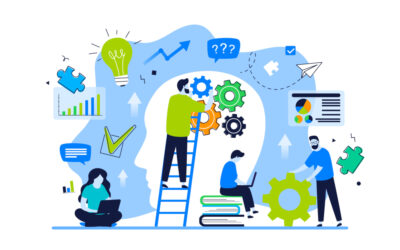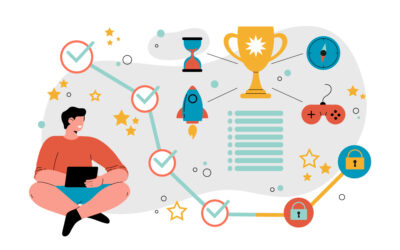
Master Remote Team Development: Boost Collaboration and Productivity
article
Introduction
In today’s fast-paced, technology-driven business world, remote work has become increasingly prevalent, prompting organisations to adapt and evolve. To ensure that your remote teams thrive and contribute effectively to your business goals, it is vital to create an infrastructure that cultivates collaboration, communication, and productivity. This comprehensive guide will provide you with the essential strategies and tools for developing high-performing remote teams that work seamlessly towards achieving success. By embracing a proactive approach and implementing best practices, you can foster a connected and results-driven remote workforce. Embark on your journey towards unlocking the full potential of your remote teams and discover the blueprint for creating a dynamic, efficient, and high-achieving remote work environment with Aarvi Learning Solutions.
Establishing Clear Communication Channels
Effective communication is at the heart of successful remote team management. Ensuring that teams have access to the right communication tools helps bridge the physical distance and maintain collaboration. Utilise a combination of communication channels tailored to the nature of your team’s interactions. For example:
- Real-time messaging platforms such as Slack or Microsoft Teams can facilitate quick information exchange and informal conversations.
- Video conferencing tools like Zoom or Google Meet are crucial for hosting team meetings and fostering personal connections among team members.
- Project management tools like Trello or Asana can help keep track of tasks, assign responsibilities, and monitor progress.
By choosing suitable tools and setting communication expectations, you can create a sense of cohesion and unity among your remote team members.
Emphasising Team Collaboration
Promoting collaboration is vital for fostering a sense of belonging and engagement among remote team members. To encourage constant collaboration:
- Create virtual spaces for regular project updates, brainstorming sessions, and problem-solving discussions.
- Encourage peer feedback and recognition to ensure team members are aware of their colleagues’ achievements and contributions.
- Implement regular check-ins to discuss individual progress, address potential roadblocks, and realign goals.
Taking these measures can help nurture a collaborative environment that motivates and unites team members, ultimately driving them towards shared success.
Prioritising Training and Skill Development
Providing opportunities for continuous learning and skill development ensures that your remote team members remain engaged, motivated, and equipped to handle new challenges. Develop a customised training program to address your team’s specific developmental needs, and offer various learning formats like live webinars, online courses, or e-learning modules. Providing access to resources and tools that support skill development will enable your remote team members to grow professionally and contribute effectively to the organisation.
Implementing Performance Measurement and Feedback Systems
Tracking the performance of remote team members and providing regular feedback is key for maintaining productivity and alignment with organisational goals. Utilise remote team performance management tools, such as 15Five, Lattice, or Bonusly, to facilitate performance evaluations, goal setting, and feedback exchange. In addition, schedule periodic one-on-one video conversations with individual team members to discuss their progress, achievements, and areas for improvement. These conversations will help instil a culture of transparency and a performance-driven mindset across your remote workforce while also ensuring employees feel supported and acknowledged.
Encouraging Work-Life Balance
Preventing burnout and promoting work-life balance is essential for maintaining the well-being and productivity of your remote team members. To achieve this, encourage your employees to establish and stick to regular working hours, avoid overworking, and take breaks throughout the day. Promote the importance of personal time and interests outside work to prevent exhaustion, stress, and demotivation. Remember to lead by example – as a manager, demonstrate work-life balance practices and communicate their importance to your team members.
Fostering a Strong Remote Team Culture
Building a positive and inclusive remote team culture is crucial for enhancing employee engagement, satisfaction, and loyalty. To cultivate a strong remote team culture:
- Establish and communicate your team’s values, vision, and objectives, ensuring that each team member understands the organisation’s expectations and direction.
- Celebrate achievements and milestones, both at the individual and team level, to acknowledge progress and instil a sense of pride in the work being done.
- Organise virtual team-building activities, ranging from online games to hobby-sharing sessions, to encourage personal connections and friendships among team members.
A strong remote team culture allows employees to feel united, appreciated, and inspired, which consequently enhances their commitment, motivation, and job satisfaction.
Investing in Necessary Technology and Infrastructure
Providing access to necessary technology and infrastructure is critical to the overall productivity and performance of remote team members. Ensure that each member has access to necessary equipment, such as laptops, headphones, and high-speed internet, to perform their work efficiently and without disruptions. Additionally, invest in software tools that facilitate collaboration, communication, task management, and secure data sharing. By providing a robust technological infrastructure catered to your team’s needs, you can empower your remote workforce to perform effectively and surpass expectations.
Promoting Employee Wellness and Mental Health
The mental and emotional well-being of your remote team members significantly influences their overall productivity and job satisfaction. Encourage healthy habits and wellness practices like physical exercise, regular breaks, stress management techniques, and adequate sleep. Additionally, provide resources and support for mental health, such as counselling services or mental health awareness programs. Focusing on employee wellness demonstrates your organisation’s commitment to supporting its remote workforce’s well-being and fosters an empathetic and nurturing work environment.
Elevate Remote Team Performance with Aarvi Learning Solutions
Developing high-performing remote teams is within reach when you invest in established strategies and proven tools. Aarvi Learning Solutions empowers you to create a thriving, motivated, and efficient remote workforce that consistently achieves business success. With our expertise in learning and development, communication, and team-building, we can create tailor-made solutions designed for your organisation’s unique needs. Don’t let the challenges of remote work hold your organisation back from reaching its full potential – embrace Aarvi Learning Solutions and transform your remote teams into a driving force for success. Visit our website and discover how our learning and development solutions can elevate your remote teams’ performance and collaboration to unprecedented heights.
Read Similar
The Importance of Soft Skills in the Digital Age
Uncover the value of soft skills in today’s technologically-driven landscape and learn how they foster business competitiveness and team collaboration with Aarvi Learning Solutions.
Maximising Learning Retention with Gamification in Employee Training
Discover the benefits and strategies of employing gamification techniques in employee training, elevating engagement, motivation, and learning retention for lasting workforce development.
Lets Talk


